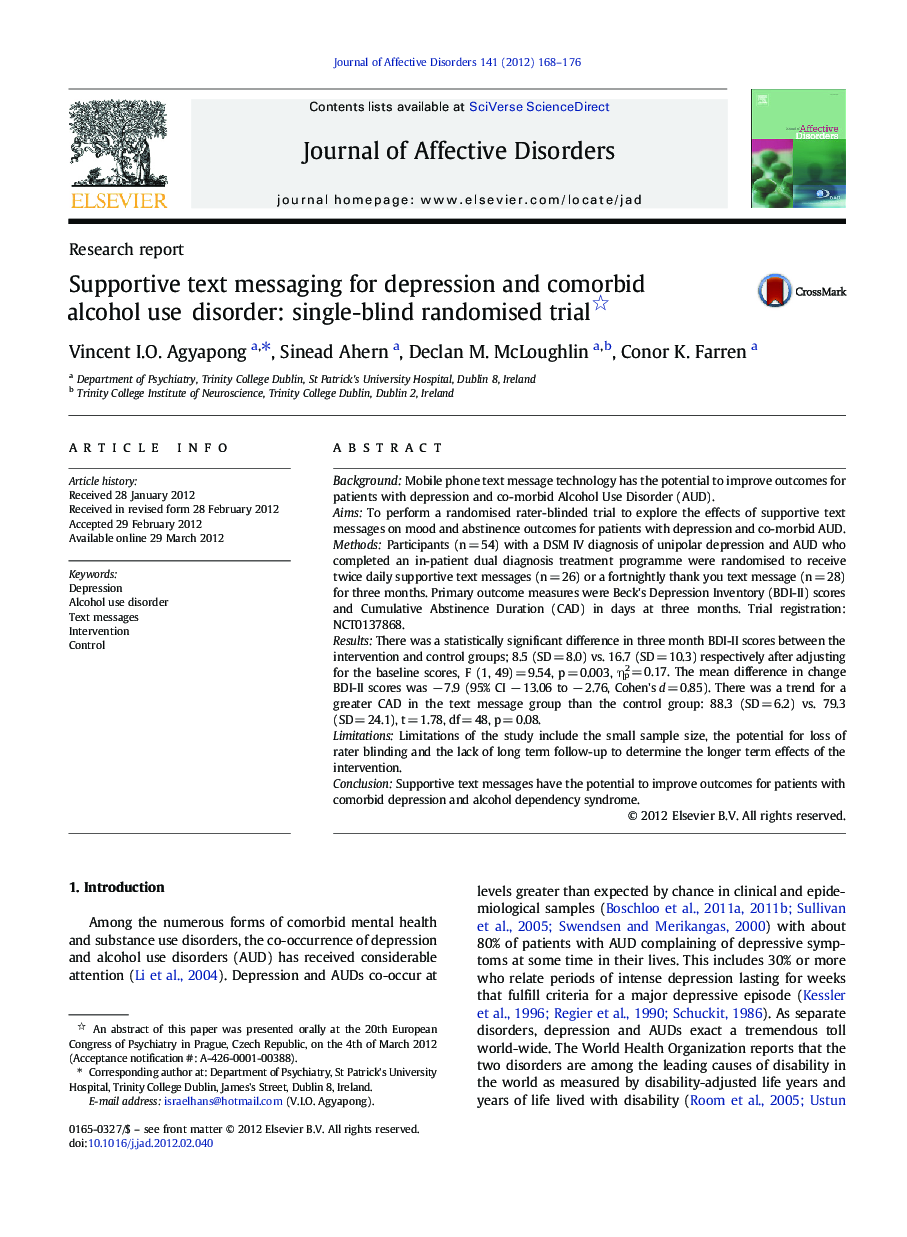| Article ID | Journal | Published Year | Pages | File Type |
|---|---|---|---|---|
| 4186214 | Journal of Affective Disorders | 2012 | 9 Pages |
BackgroundMobile phone text message technology has the potential to improve outcomes for patients with depression and co-morbid Alcohol Use Disorder (AUD).AimsTo perform a randomised rater-blinded trial to explore the effects of supportive text messages on mood and abstinence outcomes for patients with depression and co-morbid AUD.MethodsParticipants (n = 54) with a DSM IV diagnosis of unipolar depression and AUD who completed an in-patient dual diagnosis treatment programme were randomised to receive twice daily supportive text messages (n = 26) or a fortnightly thank you text message (n = 28) for three months. Primary outcome measures were Beck's Depression Inventory (BDI-II) scores and Cumulative Abstinence Duration (CAD) in days at three months. Trial registration: NCT0137868.ResultsThere was a statistically significant difference in three month BDI-II scores between the intervention and control groups; 8.5 (SD = 8.0) vs. 16.7 (SD = 10.3) respectively after adjusting for the baseline scores, F (1, 49) = 9.54, p = 0.003, ηp2 = 0.17. The mean difference in change BDI-II scores was − 7.9 (95% CI − 13.06 to − 2.76, Cohen's d = 0.85). There was a trend for a greater CAD in the text message group than the control group: 88.3 (SD = 6.2) vs. 79.3 (SD = 24.1), t = 1.78, df = 48, p = 0.08.LimitationsLimitations of the study include the small sample size, the potential for loss of rater blinding and the lack of long term follow-up to determine the longer term effects of the intervention.ConclusionSupportive text messages have the potential to improve outcomes for patients with comorbid depression and alcohol dependency syndrome.
